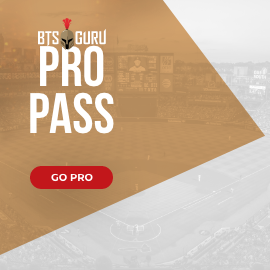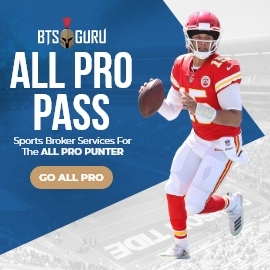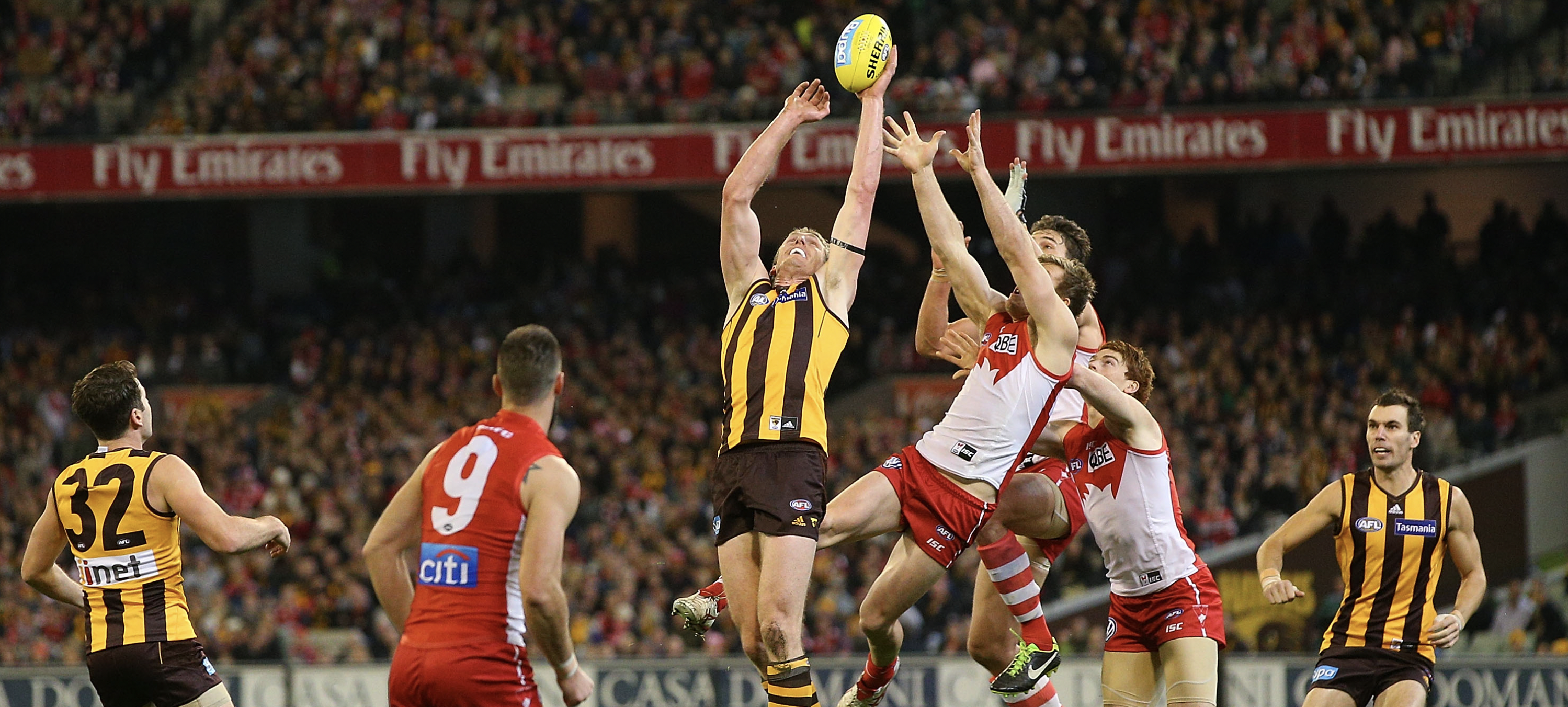Betting Strategies
What is a unit in sports betting?
•
March 22, 2024
10 ways to be a better sports punter
•
July 8, 2023
What is a sports betting crush and when to use it?
•
June 9, 2023
The 5 reasons why sports punters lose
•
June 1, 2023
How to develop a sports betting strategy
•
May 24, 2023
The history of gambling
•
February 10, 2023
Become an Insider
How to develop a sports betting strategy

-
Adam DeMaule
This article forms part of a series of articles on sports betting strategies and how you can take on the bookmakers in the biggest sports events in the world and win. In this article we’re going to show you how to develop a sports betting strategy by providing both old and new punters with a way to build a strategy to bet and win at #SportsBetting. Have you created your staking plan, and developed your unit strategy? In this article we look at 9 ways you can develop a sports betting strategy.
Where it started
In 2020 we set out to start a new business to show the average punter that if you have a disciplined approach to sports betting you can win. When we first started on this journey to educate the everyday, or weekend punter about how this all works. First though there were many areas of our business that we really took for granted, as we just had our own practices in place and there were so many areas that we didn’t feel needed explaining. As we progressed further we realised that to perform well we had to help the punter understand the strategy so they too could find a way to beat the bookmakers at betting on sports.
Being a professional punter isn’t easy, but then being a professional that gives punters advice is probably even harder. Most punters want to do their own thing, that’s just how people are in this game. Punters feel like they can pick all the winners, and don’t really like taking advice, they usually also fall into bad habits because they have no structures, systems or strategies and the results are well below average. While everyone can pick a winner sometimes, when confronted with the cold hard facts about punting, we all know who usually gets all the money, and it ain’t the punter!
In this article we’ll discuss the basics to getting on the right track when it comes to being a better sports punter, and hopefully give you some insights that you can use into how we build a foundation that sets us up for success.
In this article we’ll cover these High Level Points –
- What is Gambling?
- What is a stake?
- What is a unit – how to calculate a unit amount?
- How to build a safeguard and protection plan for your betting stake?
- Responsible Gambling!
- How to build a tracking system?
- How to become a scout to find the best odds?
- How do you decide what a good bet is?
- Playing with the house’s money!
What is Gambling?
In our opinion gambling is betting with money you don’t have or shouldn’t be risking on anything, let alone a sports betting outcome, or worse playing a poker machine. There are so many bad connotations with the term Gambling, and that’s because most people that would be considered gamblers are just that, they gamble with money they don’t have. When you look at the average punter most can control themselves and don’t blow their entire pay packet on Friday night or Saturday at the races. They put aside what they can afford to play with and usually that’s enough. For some though the thrill of winning, the chance of getting it back, the feeling of winning it all in the “Get Out Stakes” and maybe it’s the bragging rights that comes with winning a few dollars is where many come unstuck.
We do want to make this clear, we don’t condone gambling, we don’t recommend you risk anything you can’t afford to risk. Our business is about discipline, patience, structures, systems, barriers, information, education, learning, watching, evaluating, and planning, to all help provide us with the very best chance to come out in front each month and each year.
What is a Stake?
When it comes to sports betting or any betting for that matter it is important to note that we believe it’s a long term play, and you should base your results and how you perform on a yearly basis. There’s no point winning big one month and then losing 3 months in a row and finding yourself behind on your original stake. The point of a stake is to give you a starting point to speculate with. The stake for most people comes in the form of part of their weekly or monthly paycheck. The stake is a % of how much money you should be very comfortable with losing, because let’s face it betting on sports isn’t easy, and there’s a very strong possibility that without the right structures and systems, you’ll be losing your stake more often than you’ll be winning and clearing a profit might never happen. Simply put you must still be able to maintain all your other financial commitments when you calculate how much your stake actually is going to be. We won’t recommend a % or an overall amount as it varies from person to person, but what we can say is that your stake no matter how much is an extremely valuable amount of money and you should treat it with a lot of respect. If you can’t afford it then maybe try saving up first, and get started only when you’re comfortable that if you lose this money, it won’t affect the rest of your life positions.
Once you’re comfortable with the amount you choose for your stake the next thing you need to do is convert this stake into a unit amount. The unit amount is a very important number as we will cover further in this article as you learn to develop a unit staking program.
For example purposes we’re going to look at a few ways to develop a stake and unit system. When it comes to sports betting, we consider a person able to comfortably afford to set aside $100 a week to be our baseline punter for this example. At $100 a week that places you in the $5000 a year category, now while most people won’t have $5000 to spare, or just lying around to place into a betting system, we’ll stick with the weekly model of having $100 available as an example.
The question right away is how much of the $100 should you speculate with and how do you determine what a unit is?
What is a Unit – How to calculate your unit amount?
As a punter who wants to win you’ll need to create a unit system and structure. While many Professional Punters have an instinct for how much they bet on a specific outcome, we believe it’s best to create a structure that you can use guidelines with. So what is a unit? A unit is a set amount of money based on your total stake that forms a single unit amount that allows you to spread your total stake into smaller amounts to speculate with. This amount can vary depending on levels of experience, and or exposure to risk, but for the beginners or punters looking to find a better way, a unit can be determined by using the following calculation.
TOTAL ANNUAL STAKE divided by 250 or $5000 / 250 = $20.
In this example 1 unit represents $20.
The 250 is established by an average of 50 weeks in the year and allows for a speculation on 5 total outcomes at 1 unit per outcome. This is a base model that establishes the ability to have a series of outcomes each week, or increase the unit value if an outcome is worthy of that increase. Another way to look at the 250 figure is as a % of your overall stake. We believe the unit amount should be equal to about 0.4% of your overall stake. So if you calculate 5000 x 2.0% = $100 and then divide this amount by 5 which allows you to have 5 outcomes in any given week, which again equals $20 for 1 unit outcome.
The same would apply for more experienced punters that fit within our All Pro Sports Brokering Service where their annual stake is $25,000, which places their unit amount at $100.
Whatever your unit amount is, it’s a good idea to stick with this unit amount until you have either won enough money to increase your unit, or you’re ready to up your stake because you have a little extra you can comfortably afford to add to your stake amount.
For this example we’re going to stick with $20 / unit or about a $100 per week punter.
How to build a safeguard and protection plan for your betting stake
Now that you have a unit amount you need to build a protection amount into your system to ensure you manage your stake effectively. A safeguard is an amount you cannot go past in the week, in this example we like the 80/20 rule. In this case as $100 is our total stake for the week we would recommend that you allow yourself $80 in total to speculate with. This gives you a small buffer and holds 1 unit in reserve should you need to (as most of us do) find a way to “Get out” or “Square Up” as we refer to it. A square up is where we have lost the entire allowable stake ($80) and we’re looking to have 1 more chance to get back the $100, or our maximum total weekly stake, as an example in that case we’d be speculating on a 5-1 shot, or we might consider a lower outcome amount and only lose a little for the week. It really depends on what potential outcomes are available, and we don’t recommend swinging for fences.
The main point of the safeguard and protection plan is to establish a set limit that once reached you stop, you don’t search for more funds to increase the weekly stake to try and find a way to win your money back. You have to be incredibly disciplined and you have to say that’s my safeguard amount, that’s my limit, both if you win or lose.We strongly believe in the long term play, so if you’re out, start working on next week’s strategy.
Responsible Gambling
As discussed earlier, gambling is speculating and spending money you either don’t have, or shouldn’t be using. We adhere to a responsible speculation system, and use this as a form of entertainment, where you are in control and allocating the appropriate funds that comfortably meet within your weekly or yearly financial plan. Being responsible in this arena of life is how you can take charge of your situation, stay within your lane and give yourself the best chance to come out ahead. If you feel you need to speak with someone about your situation please refer to our Responsible Gambling Section and seek advice.
How to build a tracking system
A tracking system is a great way to allow you to keep tabs on how you are doing during the year. We advocate for keeping the funds that you are using to speculate with recorded and tracked. You can use any system you like that works for you. We prefer to use Google Sheet or something similar as it gives you a way to build a yearly calendar, keep results listed and track not only the types of outcomes you are focusing on, but also your unit allocations, areas to keep notes, and of course how you are fairing over the course of the month / year.
The main criteria is >
Date, Bet Type, Outcome, Unit Allowance, Odds, Return, Profit, ROI YTD.
There are many benefits to keeping your own records, including learning the types of outcomes you tend to go for, which outcomes are working and which are not, how you fair when you’re under pressure, or don’t have much time to review potential outcomes. It really can help you navigate a week, the month and the year as you set out to turn a profit.
How to become a scout to find the best odds?
Likely the most critical component of your betting system, is finding winners, and believe us when we say this, that’s easier said than done, especially when you have to narrow it down to one specific weekend or day.
The best advice we can give you is:
- It helps if you have a passion for a particular sport
- You watch a sport you’d like to speculate in
- You have a fair idea about the sport, the rules, and the players
- You keep track of results and understand key match ups
- You can evaluate specific odds and find value amongst the markets
- Find a lane and stay in that lane
- Keep multi bets to a minimum or use a trim or teasing strategy within the multi
- Put your team aside, it’s not worth getting emotionally attached
- In the beginning stick with 1 unit outcomes
- When you reach your weekly limit stop, win or lose, and start again next week
How do you decide what a good bet is?
This of course is where the rubber meets the road, if you are able to evaluate outcomes based on a reason, or reasons, then you might just have a fighting chance at finding the right outcomes with the best value to ensure a profitable return.
A reason is? Why a specific outcome might occur, like in an Over / Under situation in a NBA match. You need to consider the reason. Are the teams highly offensive or heavily defensive? Are all the front line starters and best players in the lineup, are any players not playing? Is the game of any specific outcome to either team, like making a finals berth, or in a rivalry situation, where is the game being played? Is this an extended road trip? When you consider reasons, you give yourself a chance to build a story, that can and may unfold. When you’re experienced in this area, you see the game generally for how player outcomes are most likely going to unfold. A side note here is – this is professional sport, never underestimate the potential of a professional athlete in being able to overcome extreme adversity.
We’ll cover specific sports and how we build reasons, and which markets we like to assess in more detail in another post, but for now you should list down a set of outcomes that you like to follow. It can be extremely difficult and time consuming to follow multiple outcomes, and even multiple teams. It can however prove highly lucrative to follow one or two teams and keep track of their progress in certain outcomes (markets).
“Staying in your lane” is a term we use to describe a strategy, if you follow certain outcomes, you can see trends, however we would caution you here against certain trends as there are statistical outcomes that the bookmakers are using to determine the odds for each outcome. Staying in your lane might mean understanding how to trim and Under / Over, or when to tease one. Staying in your lane means find a position that you’re comfortable with and stick with. There’s no point jumping around and changing your lane, you need to build consistency and discipline and you need to find a lane (or possibly 2 lanes if you have the skill) to start with.
Trimming and Teasing is a strategy employed by Professional Punters, where a trim is when you review a lower Over / Under total for a reduction in odds, and Teasing is where you extend an Over / Under total again for a reduction in odds.
Playing with the house’s money
The final piece of advice for this article is about using the house’s money. The difficulty in beating the bookmakers is that unless you can pick an unbelievable amount of winners matched with the correct odds week in and week out, you’re likely going to find it a pretty tough slog trying to fill your bank. One strategy, and this is just one of many we employ, is to increase unit amounts after a significant period of winning. We still recommend staying in your lane, being patient and keeping a measured approach to the total odd value you are chasing. However, let’s say for example you find yourself at +20 units of profit. This is a good position, and we suggest you set a target that you are comfortable with before you employ this strategy of “Playing with the House’s Money”. At 20+ units of profit at $20 / unit you would find yourself at $400 in the profit column. This would equate to a small return for most people over the course of a year where you’re investing $100 / week in your speculation strategy, or say $5000 per year. $400 would represent an 8% profit. This is where we recommend using up to 5 units (or 25% of that profit) in an attempt to hit a few bigger outcomes. We’re not recommending anything too high, but if you can employ your same system strategy that got you there and find outcomes similar but up your Unit value you can really use the house’s money to extend your profits.
Success starts with a plan to succeed
The art of winning money in sports betting, is a skill, it takes an extreme amount of effort, hard work, planning, recording, scouting, watching, also importantly learning from your mistakes, and having the ability to course correct and adapt as the year goes on. Not every sport runs year round either, so being a punter requires that you have a well rounded approach to the sports you wish to speculate on.
We wish you every success in building a staking system, creating a manageable unit strategy, identifying the lane that best suits you and the ability to take advantage of turning profits into bigger profits by using the house’s money. Good hunting!

























